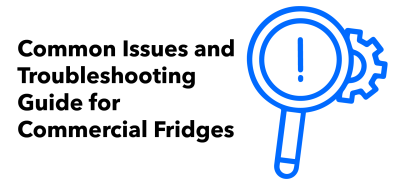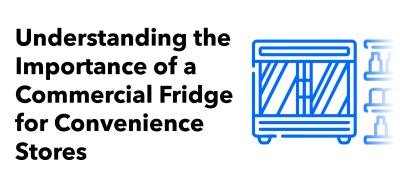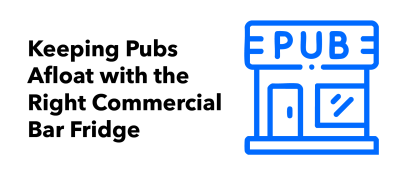Finding the Best Commercial Fridge Repair Solutions for Your Business

Commercial fridges are indispensable for businesses that rely on chilled storage, from cafes and restaurants to convenience stores and pubs. When a fridge malfunctions, it can disrupt operations and lead to significant losses. While replacing the appliance may seem like the easiest solution, repairing it is often more cost-effective, faster, and environmentally friendly. At Husky, we believe in helping you get the most out of your equipment through reliable commercial fridge repair solutions and ongoing support.
Why Repair Instead of Replace?
Choosing to repair a commercial fridge rather than replacing it offers several benefits. It’s generally more budget-friendly, as even small repairs can significantly extend the lifespan of your appliance. Repairs also minimise disruption to your business, as a fridge can often be fixed more quickly than waiting for a replacement. Additionally, repairing your fridge is an environmentally responsible choice, reducing waste and the need for manufacturing new appliances.
At Husky, we support repair efforts by ensuring that parts are readily available for our models. This allows businesses to maintain their equipment and reduce downtime, all while protecting their bottom line.
Common Commercial Fridge Issues and Quick Fixes
Understanding the most common problems with commercial fridges can help you resolve minor issues quickly and effectively, saving you time and money. Here are some frequent issues and their potential solutions:
The Appliance Doesn’t Work
If your fridge isn’t turning on, the first step is to check the basics. Ensure the plug is securely connected to the power supply—sometimes, it’s as simple as that. If the fridge remains unresponsive, inspect the power cable and plug for visible damage. Faulty wiring should always be handled by a qualified engineer for safety reasons.
Another common issue is a blown fuse, which can be easily resolved by replacing it with one of the same rating. However, if the fridge still doesn’t function, the fault may lie within the appliance itself, requiring professional inspection and repair.
Temperature Problems
Temperature inconsistencies can jeopardise food safety and lead to unnecessary energy consumption. Start by checking that the temperature setting on the controller is correct—sometimes, an accidental adjustment can throw off the fridge’s performance. If adjusting the settings doesn’t resolve the issue, the problem might stem from factory default controller settings that need recalibration, which should be done by a professional.
Another culprit could be a blocked condenser. Over time, dust and debris can accumulate, affecting airflow and reducing cooling efficiency. Regularly cleaning the condenser using a vacuum cleaner and a soft brush attachment can prevent this issue. Additionally, ensure the fridge’s doors are closing fully and the seals are intact. Misaligned doors or damaged seals allow cold air to escape, making the fridge work harder to maintain the desired temperature.
Placement also matters. If the fridge is too close to a heat source or exposed to direct sunlight, its cooling capacity will be compromised. Relocating the appliance to a cooler, shaded spot can make a big difference. Finally, check that the ventilation grille isn’t blocked, as restricted airflow can overheat the unit.
Unusual Noises
While some noise is normal—such as the hum of the compressor or the sound of refrigerant circulating—excessive or unusual sounds indicate a problem. A common cause is the fridge being placed on an uneven or unstable surface. Use a spirit level to check its positioning and make adjustments as needed.
Additionally, vibrations can occur if the fridge is in contact with neighbouring objects. Ensure there’s enough space around the appliance to prevent it from rattling against walls or equipment. If noises persist after these checks, it might be time to consult an engineer.
Wet Outer Surfaces
If you notice condensation or water droplets on the outer surfaces of the fridge, it’s often due to proximity to a water source or a leak in the immediate area. Dry the surfaces thoroughly and move the appliance to a drier location to prevent further issues.
Wet Inner Surfaces
Excess moisture inside the fridge is typically caused by frequent or prolonged door openings. Each time the door is opened, warm air enters, causing condensation to form on the inner surfaces. Try to limit door openings to maintain cooling efficiency and reduce moisture buildup.
Emergency Commercial Fridge Repair: What to Do
When your commercial fridge breaks down unexpectedly, quick action is essential to minimise damage and downtime.
First, assess the problem by checking the fridge’s internal temperature several times a day. It’s important to note that the issue might simply be the fridge going through its defrost cycle. To be sure, check the temperature two or three times over several hours and log your readings to confirm whether your fridge is truly malfunctioning. Husky’s commercial fridges make this easy with real-time temperature displays. If you have another brand, you may need to use a thermometer to monitor the temperature accurately.
Next, relocate perishable items to a backup fridge to prevent spoilage. For hospitality and retail businesses, Husky’s backroom fridge is an excellent backup solution. This fridge is affordable, ideal for handling larger stock when your display space is limited, and most importantly, it ensures your products stay safe in the event of a breakdown. Having a reliable backup fridge can save you from losing money due to spoiled goods.
Once the contents are secure, shut off the power to the broken fridge to avoid further damage and potentially reduce repair costs.
If your fridge is under warranty, contact the manufacturer immediately. Otherwise, reach out to a local refrigeration engineer to carry out the necessary servicing. As a bonus for our customers, Husky offers remote technical support, whether or not your appliance is still within its warranty period.
Finding a Reliable Refrigeration Engineer
Selecting the right professional is crucial for an effective and safe commercial fridge repair. Not all engineers are created equal, so it’s important to evaluate their qualifications carefully.
Start by ensuring the engineer is F-Gas certified. These are the only certification bodies in the UK, and they all have directories on their websites where you can check for certified companies: Refcom, F-Gas Register, and Bureau Veritas. Always verify an engineer’s certification through these trusted sources to ensure they meet legal and safety standards.
Additionally, check if the engineer has experience working with your specific fridge brand.
When speaking to potential engineers, it’s important to ask about warranties and whether they provide guarantees on parts and repairs. This ensures you’re covered in case the same issue arises again.
Finally, evaluate their reliability based on how they respond to your inquiries. If an engineer takes a long time to reply or provides vague answers before you’ve hired them, it’s likely they’ll be just as unresponsive—or worse—once you’ve paid for their services. A prompt and professional response is a good indicator of their overall reliability and commitment.
The Importance of Regular Maintenance
Regular maintenance of your commercial fridge is vital for the smooth running of your business. Not only does it prolong the lifespan of your appliance, saving you money in the long run, but it also ensures that your unit continues to operate efficiently and reliably.
One often-overlooked benefit of maintenance is how it contributes to the visual appeal of your store or hospitality venue. Display fridges are more than just storage units—they’re tools to showcase your products and boost sales. A clean, well-lit fridge with clear glass and a spotless exterior makes your products look more attractive and appealing to customers. When the fridge is operating correctly and keeps items at the ideal temperature, it enhances the customer experience, ensuring food is fresh and drinks are perfectly chilled. Satisfied customers are more likely to buy and return for more.
In addition to improving aesthetics, maintenance minimises the risk of breakdowns and downtime that could result in lost sales, especially during peak periods. By ensuring the fridge is running efficiently, you also reduce energy consumption, lowering operating costs while being more environmentally friendly.
Food safety is another critical factor. Maintaining your fridge at the correct temperature helps ensure compliance with food safety regulations and reduces the risk of spoilage. This is particularly important in industries like hospitality and retail, where quality and safety are paramount.
Finally, regular maintenance helps build a trusted relationship with a refrigeration engineer. Having a go-to expert means you’ll know exactly who to call in case of an emergency, and that relationship can lead to faster, more reliable service. This ongoing support can be a lifeline for your business when unexpected issues arise.
If you’d like a detailed guide on how to maintain your refrigeration unit, check out our in-depth article here. It’s packed with practical tips to keep your fridge in top condition.
Signs Your Commercial Fridge Needs Repair
One of the most common ways business owners discover their fridge needs repair is through complaints from unsatisfied customers. This typically happens when food is spoiled, drinks are served warm, or the overall experience is unpleasant due to a failing fridge. In such cases, your business is affected in two ways: first, by the disappointed customer who may not return, and second, by the malfunctioning unit, which could lead to costly repairs.
To avoid reaching this point, we recommend proactively monitoring your fridge’s temperature. By checking it two to three times daily, you can identify potential issues before they escalate. Husky fridges make this easy with built-in temperature displays integrated into their control units, providing real-time readings of the internal temperature. For fridges without this feature, a separate thermometer will be needed to track temperatures manually.
Regularly recording your fridge’s temperature allows you to catch deviations from the optimal range early. This helps prevent spoilage, ensures compliance with food safety standards, and avoids unpleasant surprises that could harm your business.
Unusual noises, such as rattling, humming, or clicking, can also be a sign that your fridge is struggling. These sounds might indicate a problem with the compressor, fan, or other mechanical components. If you notice these sounds becoming louder or more frequent, it’s a clear sign that professional intervention is needed to prevent further damage.
Top Tips for Commercial Fridge Repair
- Consult an F-Gas qualified engineer for repairs to ensure the work is done safely and complies with all regulations.
- Clean the condenser coils regularly to prevent dust and debris from blocking airflow, which can lead to overheating and reduce efficiency.
- Replace worn-out seals and gaskets promptly to prevent cold air from escaping and to maintain consistent cooling performance.
- Avoid overloading the fridge, as this can block airflow and prevent even cooling. Organising your items effectively ensures proper air circulation.
- Check the temperature of your fridge frequently to ensure it remains within the recommended range. Monitoring this regularly can help you identify issues early.
- Use original equipment manufacturer (OEM) parts to maintain reliability. Husky offers readily available replacement parts for all its units through our partnership with Parts Town, and you can order them here.
- Create a maintenance schedule to ensure regular checks are carried out. This reduces the risk of breakdowns and helps your fridge operate efficiently over the long term.
Repairing and maintaining your commercial fridge is an investment in the success of your business. With the right approach and support, you can minimise disruptions, extend the life of your appliance, and ensure it performs at its best.









